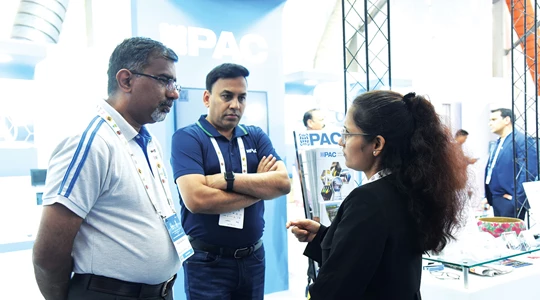be’ah driving Oman’s journey towards sustainable growth and diversified energy mix
Oman is making major strides in promoting sustainable energy and circular economy models, and be’ah, the Oman Environmental Services Holding Company, is at the forefront of driving that change in the Sultanate through its waste-to-energy project and other environment-friendly waste management initiatives.
In an interview with Energy Connects ahead of the World Utilities Congress 2023, Dr. Mohab Ali Al-Hinai, Vice President - Sustainability and Circular Economy at be’ah, outlined how the company is actively contributing to Oman's environmental goals through its ambitious waste-to-electricity project which is estimated to divert almost 4,500 tons of municipal solid waste away from landfills.
Dr. Al-Hinai, a highly skilled and experienced professional in technology and sustainability with an extensive academic background that includes a PhD in Biological Sciences, also described how other initiatives such as its tire-derived fuel project and biogas production are helping Oman reduce the use of fossil fuels and promote sustainable energy.
According to Dr. Al-Hinai, who is also a co-founder of Sustainable Investments LLC, which focuses on sustainable investing and ESG advisory in Oman and the MENA region, be’ah is playing a pioneering role in Oman’s journey to a greener and prosperous future by educating the public on sustainable waste management practices.
What are the ways in which be’ah is helping protect the environment and accelerate the energy transition in Oman and beyond? How is be’ah contributing to Oman Vision 2040?
be’ah, the Oman Environmental Services Holding Company, is playing a crucial role in protecting the environment and promoting sustainability in Oman. be’ah manages and treats all types of waste in Oman and is working towards reducing waste generation and increasing recycling rates, while working with businesses and industries to implement circular economy practices.
One of the ways in which be’ah is contributing to Oman's environmental goals is through its planned waste-to-energy project, which is set to be operational by 2028. The project will generate electricity by incinerating waste and reduce the amount of waste going to landfills. be’ah is also working on a tire-derived fuel project for the cement industry, which will help reduce the use of fossil fuels and promote sustainable energy.
Another initiative taken by be’ah is the planned biogas plant, which will convert organic waste into biogas, which will promote the use of bioenergy.
In addition, be’ah conducts awareness campaigns, workshops, and training programs to educate the public on sustainable waste management practices. These efforts align with Oman Vision 2040, which aims to transform Oman into a sustainable and diversified economy that is resilient to environmental challenges.
What are the key trends you see impacting the utilities sector in the Gulf and the Middle East? What are the major opportunities facing the sector in 2023?
The utilities sector in the Gulf and the Middle East is seeing a shift towards renewable energy, digitalisation, and sustainability. Governments across the region are investing heavily in solar and wind power, while smart meters and other IoT devices help utilities manage their networks more efficiently. Consumers are increasingly concerned about the environmental impact of their energy use, creating opportunities for companies that can demonstrate their commitment to sustainability.
Looking ahead, major opportunities include new renewable energy projects, effective energy storage solutions, and innovative sustainable services such as energy-efficient technologies, electric vehicle charging infrastructure, and energy management services for commercial and industrial customers. Companies that can adapt to these trends and seize these opportunities are likely to thrive in the coming years.
Could you elaborate on recent innovations in waste management services that be’ah has spearheaded in the region?
be’ah is making significant strides in promoting sustainability and resource management through its waste-to-energy project, which is estimated to divert almost 4,500 tons of municipal solid waste away from landfills and generate approximately 130 -160 MW of electricity. This will not only reduce the amount of waste going to landfills but also provide a sustainable source of energy for Oman.
be’ah's waste-to-energy project is a significant step towards the promotion of a circular economy in Oman. The company is repositioning itself as a resource management and circular economy company rather than just a waste management company.
How is your company setting the standards for the industry in the region when it comes to clean energy?
In addition to its waste-to-energy project, be’ah is taking several initiatives to promote sustainability and energy efficiency. The company is focusing on enhancing the energy efficiency of its fleet of 1,200 waste collection trucks and reducing fuel consumption and greenhouse gas emissions. be’ah is exploring route optimisation techniques to reduce the number of trips required.
be’ah is also exploring the use of AI and IoT to optimise the timing of waste collection. Smart bins equipped with sensors can notify the waste management company when they need to be emptied, which can reduce the frequency of collection and save fuel. Additionally, AI-based computer vision can notify of bin hygiene violations when cameras are installed on collection trucks.
The various initiatives undertaken by be'ah not only underscore its unwavering commitment to sustainability but also highlight its relentless efforts to minimise its carbon footprint. be'ah's adoption of energy-efficient practices serves as a testament to its dedication to Oman's long-term vision of building a robust, diversified, and sustainable economy.
What are the major challenges facing the utilities industry in the region and globally, and how can we overcome them?
The utilities industry is facing several global challenges, including aging infrastructure, climate change, increasing demand, cybersecurity, and regulatory challenges. To overcome them, the industry can adopt various strategies, including embracing technology, investing in renewable energy, collaborating with stakeholders, employee training and development, and regulatory compliance.
By adopting these strategies, utilities can improve efficiency, reduce costs, improve sustainability, and comply with regulations while remaining profitable. Overall, utilities need to be agile and adaptable to the changing market dynamics to remain competitive and relevant in the future.
What is your outlook for the power and water industry for the next decade?
The power and water industry is expected to undergo significant changes and growth over the next decade. One of the major trends in the industry is the shift towards renewable energy sources, such as solar and wind power, and the increased focus on energy efficiency. This shift is driven by factors such as government policies, environmental concerns, and advances in technology.
In addition, the water industry is also expected to undergo significant changes, with an increased focus on water conservation, the development of new water treatment technologies, and the adoption of smart water management systems.
Furthermore, the growth of emerging markets in regions such as Asia, Africa, and Latin America is expected to drive demand for both power and water infrastructure. As these regions continue to develop and modernize, there will be a need for new power generation facilities, as well as upgrades and expansions to existing infrastructure.
Overall, the power and water industry is expected to continue to evolve rapidly over the next decade, with a focus on renewable energy, energy efficiency, water conservation, and smart infrastructure.
What are you particularly looking forward to at the World Utilities Congress 2023? How important is this event in shaping the future of the global power and water sectors?
The World Utilities Congress 2023 is crucial in shaping the future of the global power and water sectors. It brings together experts, policymakers, investors, and industry leaders to collaborate and discuss critical issues related to the utility industry. The Congress offers a unique opportunity to address challenges such as sustainability, climate change, and the need for clean energy solutions, and the outcomes of the discussions and deliberations at the event will play a vital role in shaping the future of these sectors.
Overall, I am looking forward to seeing the latest advancements in technology, gaining insights from industry experts, and learning about the emerging trends that will shape the future of the power and water sectors. The World Utilities Congress 2023 is an essential event that will play a critical role in shaping the future of these vital industries.
Click here to register and attend the World Utilities Congress 2023, that runs from 8-10 May in Abu Dhabi.
KEEPING THE ENERGY INDUSTRY CONNECTED
Subscribe to our newsletter and get the best of Energy Connects directly to your inbox each week.
By subscribing, you agree to the processing of your personal data by dmg events as described in the Privacy Policy.
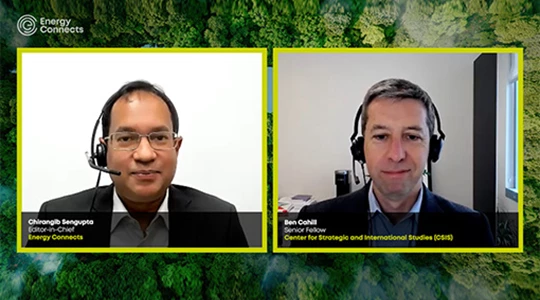
CSIS: long-term LNG demand to reshape global export capacity growth
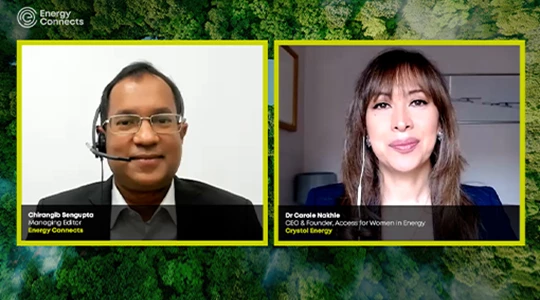
More women in energy vital to the industry’s success
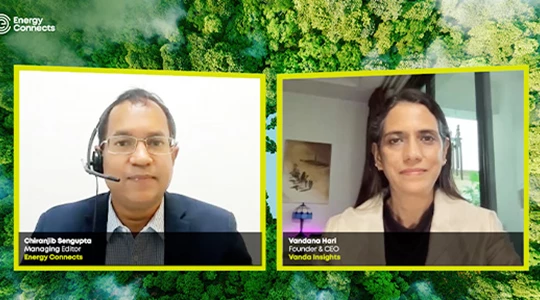
India’s energy sector presents lucrative opportunities for global companies
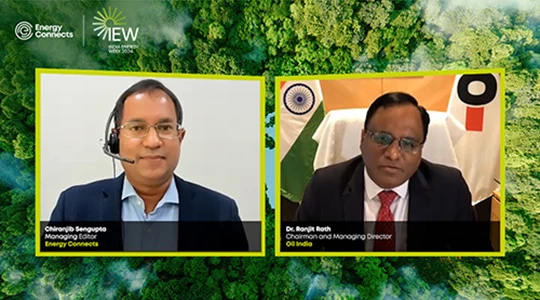
Oil India charts the course to ambitious energy growth
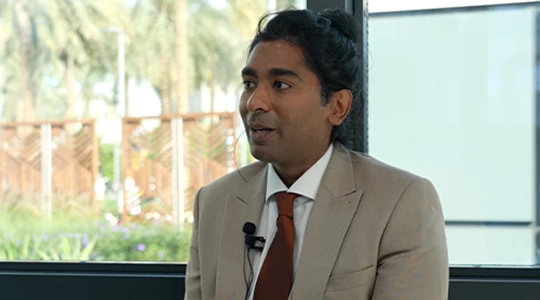
Maritime sector is stepping up to the challenges of decarbonisation
Partner content

Navigating the trading seas: exploring the significance of benchmarks

Back to the Future(s): the best commodities benchmarks are still physically settled

Ebara Elliott Energy offers a range of products for a sustainable energy economy
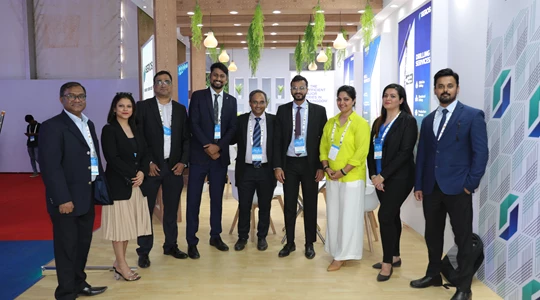
Essar outlines how its CBM contribution is bolstering for India’s energy landscape
